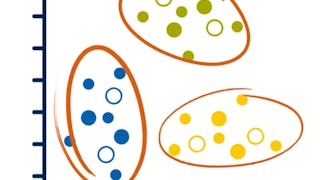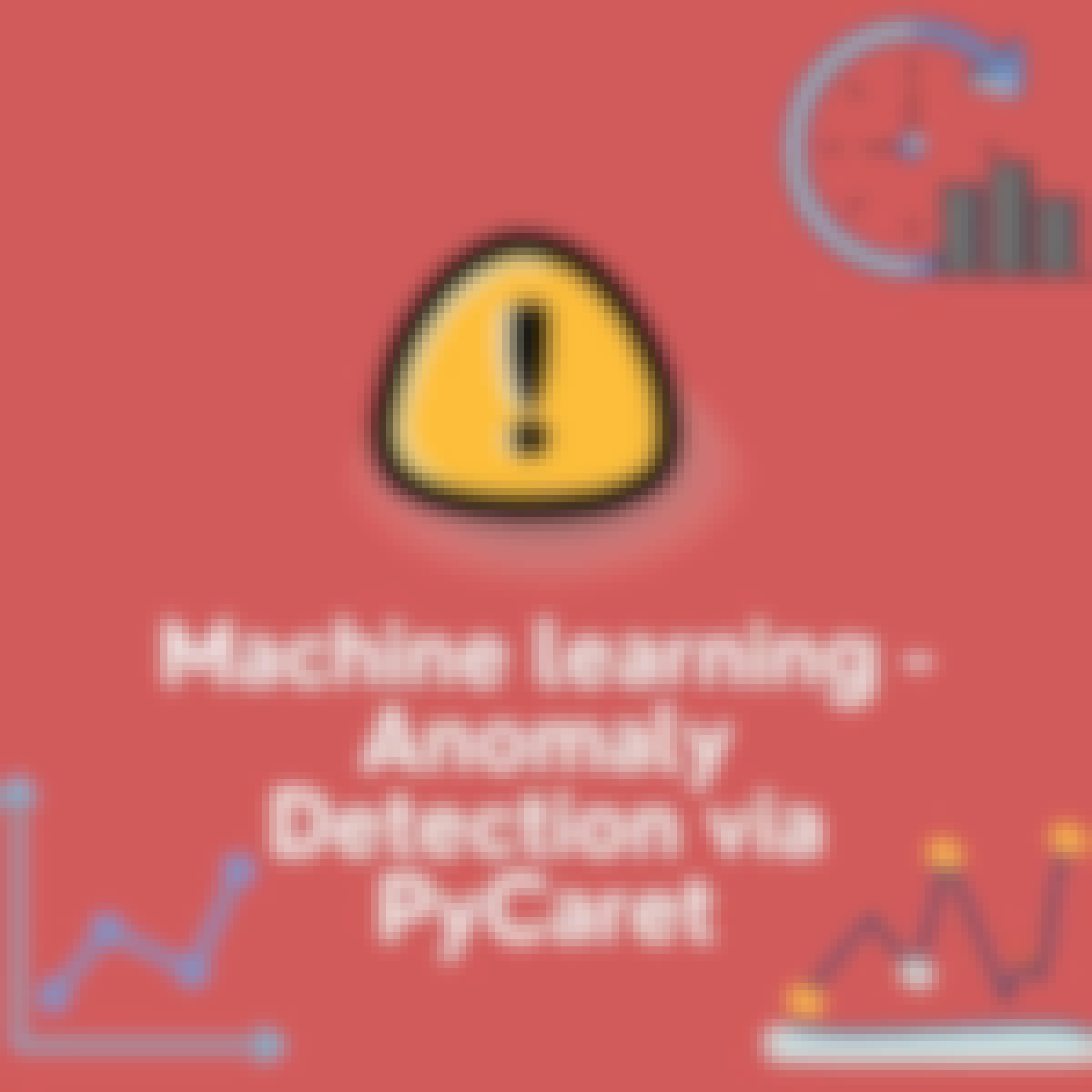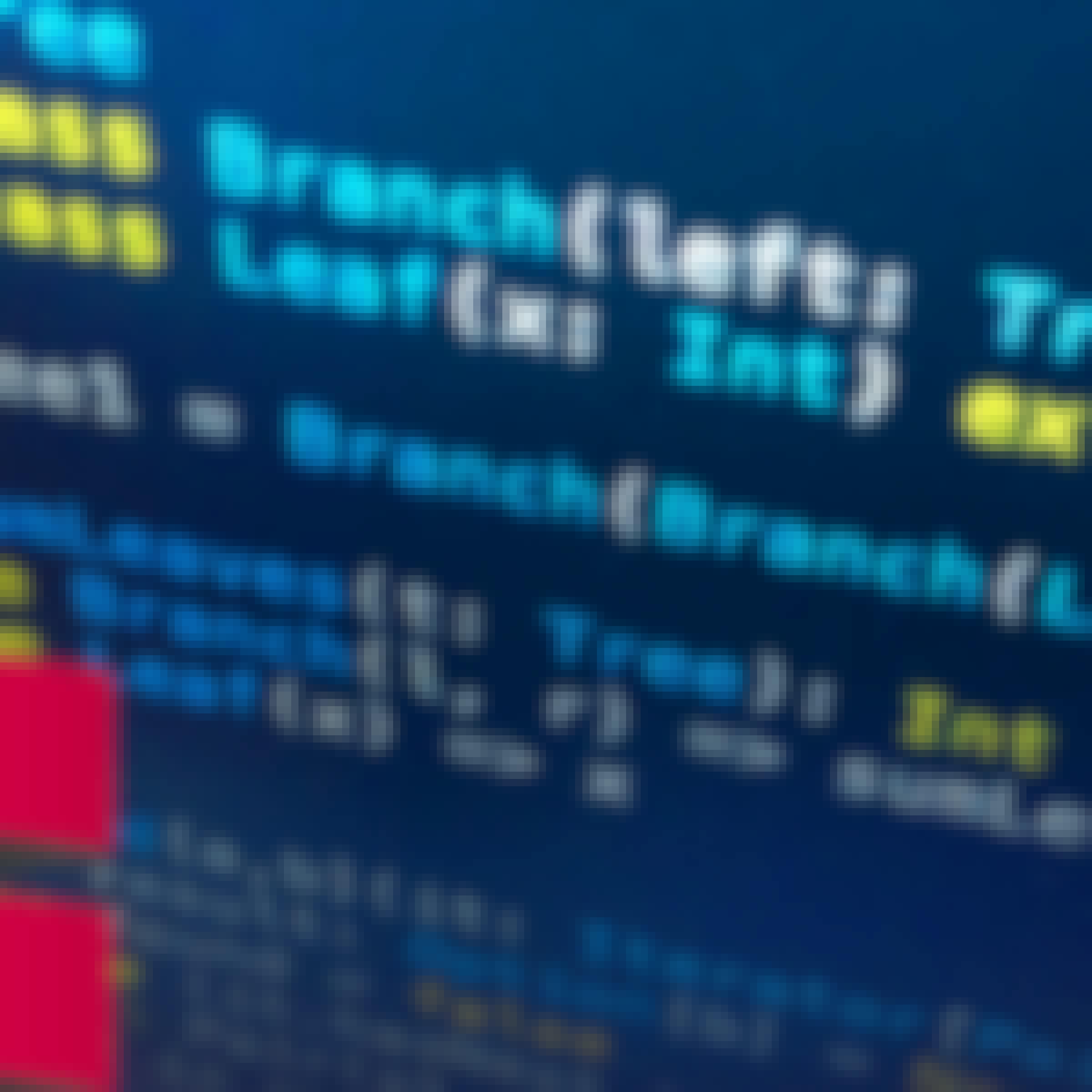- Browse
- Algorithms
Results for "algorithms"

Skills you'll gain: Java Programming, Java, Performance Tuning, Spring Framework, Application Performance Management, Algorithms, JUnit, OS Process Management, Application Frameworks, Programming Principles, Performance Testing, Spring Boot, Computer Architecture
Beginner · Course · 1 - 3 Months
 Status: Free TrialFree TrialU
Status: Free TrialFree TrialUUniversity of Michigan
Skills you'll gain: Unsupervised Learning, Embeddings, Supervised Learning, Data Preprocessing, Python Programming, Exploratory Data Analysis
Advanced · Course · 1 - 4 Weeks
 Status: Free TrialFree TrialU
Status: Free TrialFree TrialUUniversity of Colorado Boulder
Skills you'll gain: Dimensionality Reduction, Unsupervised Learning, Applied Machine Learning, Statistical Machine Learning, Machine Learning, Regression Analysis, Supervised Learning, Data Science, Decision Tree Learning, Statistical Analysis, Classification Algorithms, Predictive Modeling, Artificial Neural Networks, Data Processing, Logistic Regression
Build toward a degree
Intermediate · Course · 1 - 3 Months
 Status: PreviewPreviewF
Status: PreviewPreviewFFred Hutchinson Cancer Center
Skills you'll gain: Responsible AI, ChatGPT, Data Ethics, Generative AI, Social Justice, Artificial Intelligence, Ethical Standards And Conduct, Model Evaluation, Social Impact, Informed Consent, Verification And Validation, Case Studies, Mitigation, Data Science
4.9·Rating, 4.9 out of 5 stars10 reviewsBeginner · Course · 1 - 4 Weeks
 Status: Free TrialFree Trial
Status: Free TrialFree TrialSkills you'll gain: Model Evaluation, AI Personalization, Data Science, Predictive Analytics, Data Preprocessing, Python Programming, Development Environment
4.7·Rating, 4.7 out of 5 stars18 reviewsIntermediate · Course · 1 - 4 Weeks
 Status: Free TrialFree Trial
Status: Free TrialFree TrialSkills you'll gain: Matplotlib, NumPy, Data Visualization, Data Manipulation, Linear Algebra, Seaborn, Natural Language Processing, Deep Learning, Machine Learning, Artificial Intelligence and Machine Learning (AI/ML), Python Programming, Data Preprocessing, Data Science, Regression Analysis, Data Structures, Logistic Regression
Intermediate · Course · 1 - 3 Months
 Status: Free TrialFree Trial
Status: Free TrialFree TrialSkills you'll gain: Vector Databases, AI Personalization, Embeddings, Hugging Face, Artificial Intelligence, Applied Machine Learning, Databases, MongoDB, Natural Language Processing
4.5·Rating, 4.5 out of 5 stars13 reviewsIntermediate · Course · 1 - 4 Weeks

Skills you'll gain: Model Deployment, Anomaly Detection, Jupyter, Exploratory Data Analysis, Unsupervised Learning, Model Evaluation, Data Visualization, Applied Machine Learning, Machine Learning Methods, Data Preprocessing, Machine Learning
3.8·Rating, 3.8 out of 5 stars18 reviewsIntermediate · Guided Project · Less Than 2 Hours
 Status: NewNewStatus: Free TrialFree Trial
Status: NewNewStatus: Free TrialFree TrialSkills you'll gain: Data Structures, Python Programming, Algorithms, Data Manipulation, Computational Thinking, Programming Principles, Data Processing, Data Dictionary, Computer Programming
4.8·Rating, 4.8 out of 5 stars12 reviewsMixed · Course · 1 - 4 Weeks
 Status: Free TrialFree TrialC
Status: Free TrialFree TrialCCorporate Finance Institute
Skills you'll gain: Classification Algorithms, Model Evaluation, Machine Learning Algorithms, Logistic Regression, Predictive Modeling, Applied Machine Learning, Machine Learning Methods, Supervised Learning, Data Modeling, Analytics, Analysis, Data Analysis, Business Metrics, Feature Engineering, Advanced Analytics, Machine Learning, Scikit Learn (Machine Learning Library), Performance Metric, Data Visualization, Exploratory Data Analysis
4.3·Rating, 4.3 out of 5 stars6 reviewsAdvanced · Course · 1 - 3 Months
 Status: Free TrialFree TrialU
Status: Free TrialFree TrialUUniversity of Michigan
Skills you'll gain: Responsible AI, AI Security, Data Ethics, Generative AI, Law, Regulation, and Compliance, Artificial Intelligence, Regulatory Requirements, Information Privacy, Risk Analysis, Algorithms
4.9·Rating, 4.9 out of 5 stars10 reviewsBeginner · Course · 1 - 4 Weeks
 Status: PreviewPreviewÉ
Status: PreviewPreviewÉÉcole Polytechnique Fédérale de Lausanne
Skills you'll gain: Apache Spark, Scala Programming, Big Data, Data Manipulation, Distributed Computing, Data Processing, Performance Tuning, SQL, Programming Principles, Data Storage Technologies
Intermediate · Course · 1 - 4 Weeks
In summary, here are 10 of our most popular algorithms courses
- Java Multithreading and Parallel Programming Masterclass: Packt
- Applied Unsupervised Learning in Python: University of Michigan
- Predicting Extreme Climate Behavior with Machine Learning : University of Colorado Boulder
- Avoiding AI Harm: Fred Hutchinson Cancer Center
- Recommendation Engine - Basics: EDUCBA
- Foundations of Data Science and Machine Learning with Python: Packt
- Vector Database Projects: AI Recommendation Systems: IBM
- Machine Learning - Anomaly Detection via PyCaret: Coursera
- Python Fundamentals: Apply Data Structures: EDUCBA
- Classification - Fundamentals & Practical Applications: Corporate Finance Institute










